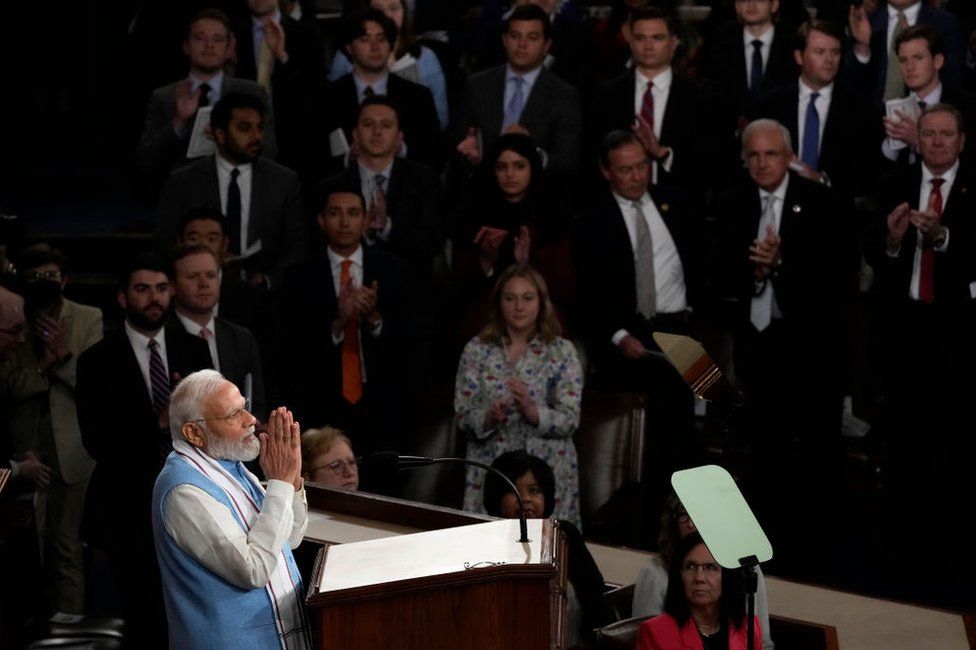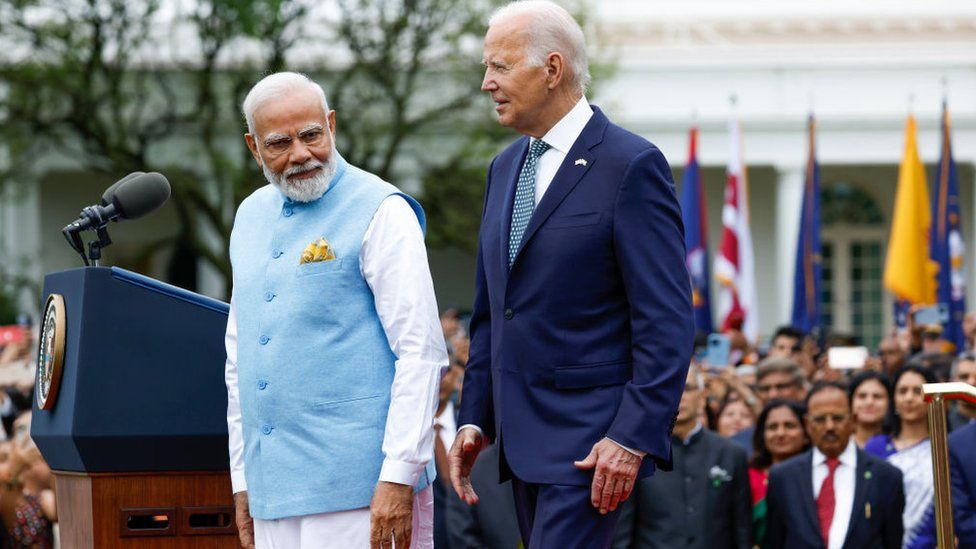When welcoming visiting Prime Minister Narendra Modi on Thursday, US President Joe Biden praised the strong ties between the US and India. .
On the South Lawn of the White House, there were 21-gun salutes, lavish vegetarian dinners, and marching bands.
A standing ovation was given to Mr. Modi when he spoke to the US Congress as part of his state visit.
Prior to becoming PM, the US had refused Mr. Modi a visa due to concerns about his respect for human rights; however, they now view him as a crucial ally.
Although Delhi has never felt entirely at ease with the label, Washington has long seen India as a counterbalance to China's expanding influence in the Indo-Pacific.
In his speech to Congress, Mr. Modi did not specifically mention China but did refer to "dark clouds of coercion and confrontation casting their shadow over the Indo-Pacific.".
Additionally, Mr. Modi avoided mentioning Russia or the party that started the conflict, instead stating, "With the Ukraine conflict, war has returned to Europe.".
Because of its enormous reliance on Russian defense imports and its "time-tested ties" with Moscow, analysts claim that India has not yet publicly criticized Russia.
Relations between Washington and Delhi have been strained as a result, but Mr. Biden chose to highlight the good, saying that ties between the two nations were stronger than ever. It was even described as "one of the defining relationships of the 21st century" by him.
The two greatest democracies in the world were joining forces, Mr. Modi informed the US Congress. Additionally, he stated that the friendship between the two nations would "play a crucial role in enhancing the strength of the entire world.".
A "new chapter" had been added, he continued, to the comprehensive and strategic partnership between the two nations.

Not everybody, though, was having fun.
As a result of his harsh repression of dissent, the Indian prime minister has come in for increasing criticism. His Hindu nationalist government has also come under fire for not doing enough to safeguard minorities from abuse and prejudice. A larger and more powerful diaspora, which includes many CEOs from Silicon Valley, has welcomed Mr. Modi's visit to the US despite the protests that have taken place.
However, some liberal Democrats chose not to attend his speech to the Congress. Rep. Alexandria Ocasio-Cortez was one of them and stated on Twitter that people with "deeply troubling human rights records" should not be given the opportunity to travel on a state visit, which is the highest level of diplomatic protocol in the US.
Along with the pomp and circumstance, trade development also occurred.
In addition to announcing agreements with General Electric and Micron, the two nations also decided to settle six pending disputes at the WTO.
Since taking office as India's prime minister in 2014, Mr. Modi has almost never taken the unusual step of responding to questions from reporters.
Even though protesters had gathered outside the White House to oppose his visit, he claimed that "democracy runs in our veins" and that there is "absolutely no space for discrimination" in India when asked about human rights issues in that country.







